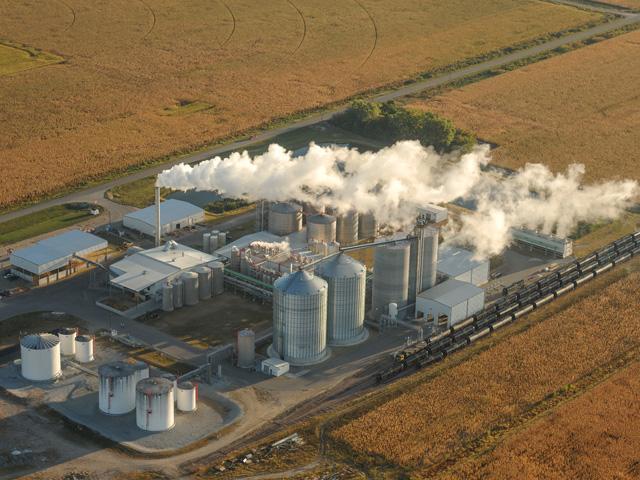Growth Energy Intervenes in RFS Case
Growth Energy Fears Lowering of RFS Volumes if ESA Lawsuit Successful
LINCOLN, Neb. (DTN) -- The Center for Biological Diversity filed a lawsuit in July against the EPA alleging the agency did not conduct a full review of how the latest Renewable Fuel Standard rule might affect endangered species.
Ethanol interest group Growth Energy this week filed a motion to intervene in the case filed in the U.S. Court of Appeals for the District of Columbia Circuit.
In June, the EPA finalized a multiyear renewable volume obligations proposal -- known as the set proposal -- for 2023 to 2025.
In July, the center alleged in a news release about the lawsuit that EPA failed to complete consultations with the U.S. Fish and Wildlife Service and National Marine Fisheries Service to consider alleged harm to endangered species from land conversion, along with pesticide and fertilizer use in response to the RFS demand for corn and soybean crops.
Growth Energy CEO Emily Skor said the EPA has a history of studying and showing the RFS does not harm endangered species.
"By any measure, the RFS is one of the nation's most successful renewable energy and environmental programs," Skor said. "And yet it's the target of near-constant litigation from groups seeking to weaken it, limit its reach, or undo it altogether. EPA has amply shown that the RFS set does nothing to undermine our nation's commitment to protecting endangered species. Oil industry interests surely must enjoy watching some environmental groups do their bidding by working so hard to undermine a program that is, today and into the future, reducing our nation's reliance on fossil fuels and lowering carbon emissions."
Growth Energy outlined in its motion to intervene in the case that EPA did consult with the services ahead of releasing the set rule.
P[L1] D[0x0] M[300x250] OOP[F] ADUNIT[] T[]
"Long before issuing the 2023-2025 rule, EPA commenced consultation with the services under the ESA," Growth said in its motion.
"In May 2023, EPA informed the services that it had 'determined that (the proposed 2023-2025 rule) is not likely to adversely affect (endangered) species and critical habitat.' EPA then determined that, under section 7(d) of the ESA, it was appropriate to finalize the 2023-2025 RFS requirements before the completion of the ESA consultation process. Two weeks after the 2023-2025 rule was published, the National Marine Fisheries Service informed EPA that it 'concurs' with EPA that the 2023-2025 rule is 'not likely to adversely affect' endangered species or critical habitats.
A few days later, Growth Energy said in the motion, the Fish and Wildlife Service informed EPA that it "concurs" because the 2023-2025 rule "will have no effect" on endangered species or critical habitats.
Over the years, environmental groups have sued the EPA, alleging RFS volumes are finalized without doing the proper ESA consultation.
The Center for Biological Diversity said in a July 13 news release that EPA should have consulted the services prior to finalizing the set rule.
"Despite two prior rulings from the D.C. Circuit that the EPA failed to properly consider harm to endangered species, the EPA only requested consultations with the agencies on May 19, 2023 -- four days after it had completed its work and sent the final rule to the White House for review," the CBD said in the release.
"The final rule was announced 30 days later. Not surprisingly, the agencies were not able to complete their analyses in such a short time frame."
In a 2018 report to Congress on the RFS program, the EPA concluded that 4 million to 7.8 million acres of land had been converted to growing corn and soybeans since the program's enactment in 2005.
Growth Energy laid out several reasons why it should be allowed to intervene in the case, which to this point is not opposed by the plaintiffs in the case.
"The center is expected to advocate for the reduction of the 2023-2025 RFS standards, including in particular the implied non-advanced volumes, given the center's (unfounded) claims regarding the environmental effects of producing corn ethanol," Growth Energy said in its court filing.
"Because the 'demand for renewable fuel will be a function of the renewable fuel standards,' 'the basic laws of economics' establish that reducing RFS standards will 'cause the demand' for corn ethanol to drop.
"The causal relationship between the rule, this litigation and Growth Energy's members' potential injuries is straightforward. The 2023-2025 RFS standards set the level of renewable-fuel demand and the restriction on competition; the center's challenge presumably will argue that the standards are too high; the success of that challenge could therefore reduce the standards, resulting in the financial and competitive injuries just described; and rejecting the center's challenge would preserve the standards and thus avoid those injuries."
Read more on DTN:
"EPA Finalizes Multi-Year RFS Volumes," https://www.dtnpf.com/…
Todd Neeley can be reached at todd.neeley@dtn.com
Follow him on Twitter @DTNeeley
(c) Copyright 2023 DTN, LLC. All rights reserved.




